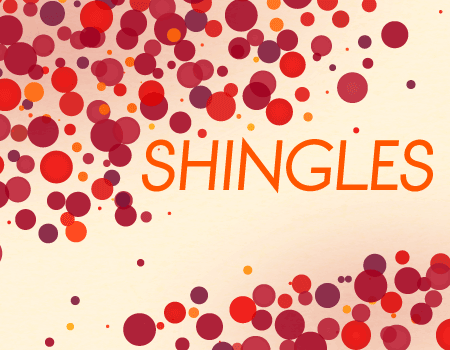
Odds are you know someone who has had to endure the pain of a shingles rash. After all, 1 out of every 3 people in the United States will develop a case in their lifetime. On the bright side, there is a shingles vaccine that allows you to steer clear of shingles.
What is shingles?
Shingles is a contagious rash that is caused by the varicella-zoster virus – the same virus that causes chickenpox.
“If you’ve ever had chickenpox, you’re at risk of developing shingles,” said Leah Matuszewski, Marshfield Clinic Health System internal medicine nurse practitioner. “That’s because even though you recover from chickenpox, the virus stays dormant in your system.”
Recovering from shingles can be difficult. Matuszewski says symptoms include deep burning and stabbing sensations, usually on one side of the body. A red rash may develop after the pain starts, followed by fluid-filled blisters that will eventually crust over. This can happen over a span of several weeks. Fever, headache and fatigue are also common. Furthermore, the virus affects people differently.
“Some can develop the complication of postherpetic neuralgia, a condition that causes pain for long after your blisters have cleared,” Matuszewski said. “For others who have herpes lesions that spread to their face and eyes, they have the risk of blindness.”
If you have shingles, be careful when blisters are draining because you can transmit the virus to others through those fluids. Also be sure to alert your doctor for treatment, because anti-virals can shorten the course of the illness, if used early.
The best protection from shingles rash
Shingrix is an FDA-approved vaccine to help prevent shingles. It is recommended for adults 50 years and older, because that population has the highest risk of complications. People 19 and older who have weakened immune systems can also receive Shingrix.
“Not only is the vaccine effective at preventing complications like postherpetic neuralgia, it’s very good at preventing shingles in the first place,” said Matuszewski. “Shingrix is more than 90% effective at preventing shingles in people 50 and older.”
Even if you don’t believe you’ve had chickenpox, the vaccine is still recommended. That’s because you may have had a “silent” or undiagnosed case. Also consider getting it if you’ve had shingles before, because it has the chance to return.
“There are some possible side effects of the vaccine, including tiredness, headache, fever and nausea, but these are usually minor compared to the defense your immune system is building up against shingles,” Matuszewski said.
Lastly, she recommends talking to your provider about the pros and cons, along with your insurance company about immunization coverage.
Related Shine365 articles
Wellness checkup: A physical examination by your family doctor






Leave a Reply